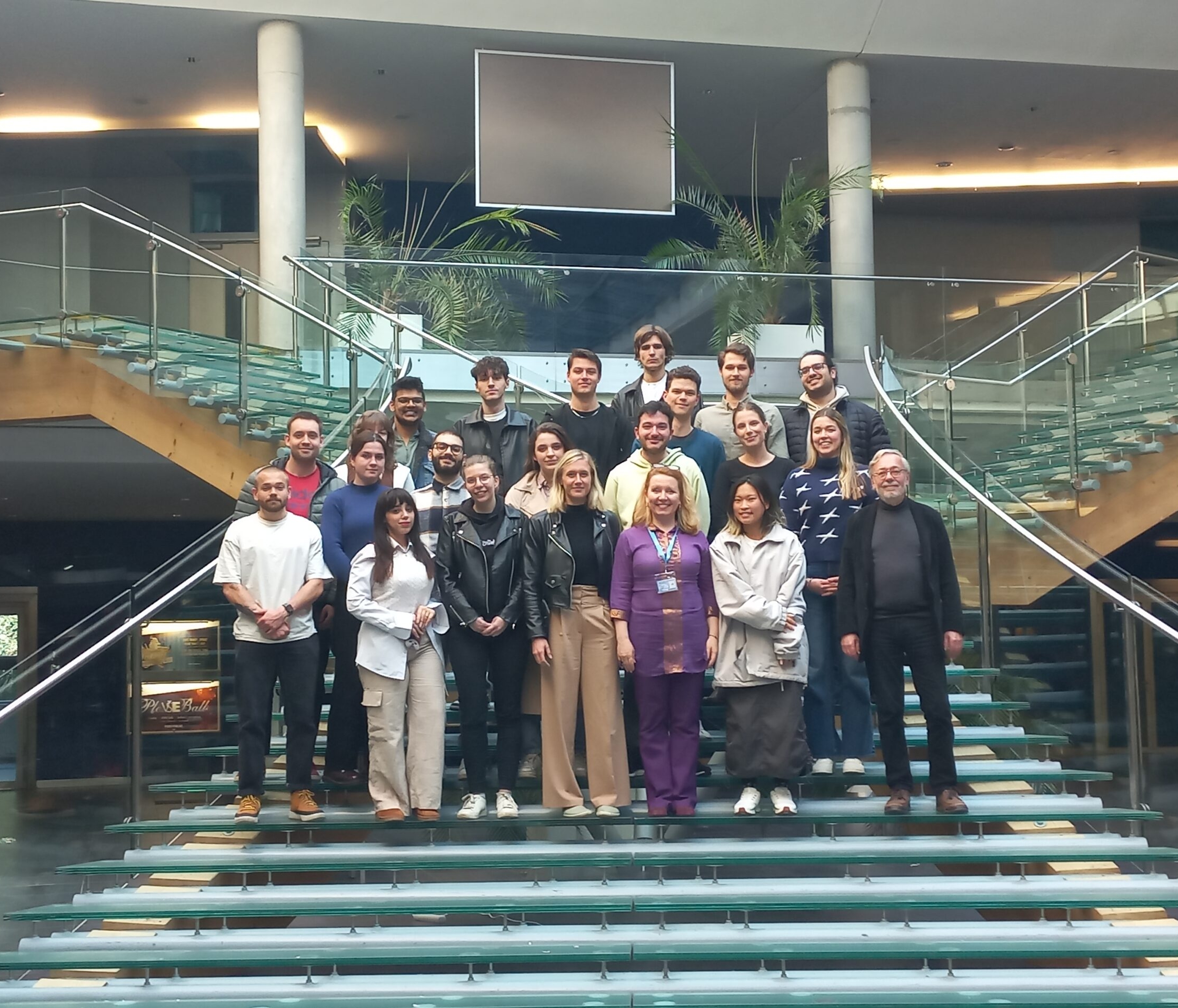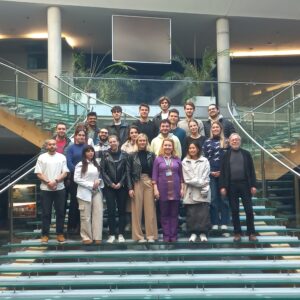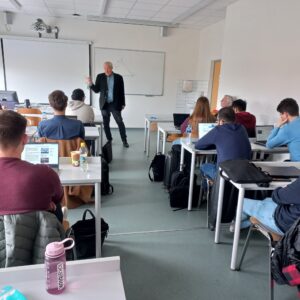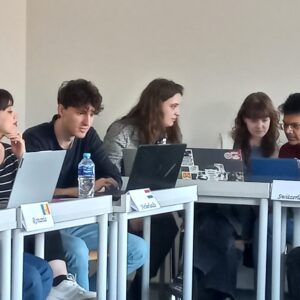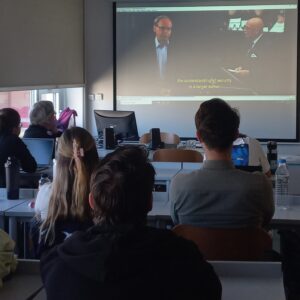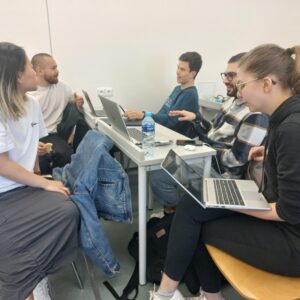If you are not at the table, you will be on the menu!
An intensive course titled Contemporary International Negotiation Practice challenged students’ perspectives and sharpened their strategy toward negotiation. This course has transformed the classroom into a dynamic arena where students plunge themselves into a business discussion, diplomatic tensions, and the elusive power of perspective becomes clear. Our visiting professor, Ms. Ida Manton prepared this course with focus on the 50th anniversary of the Helsinki Final Act (HFA). One of the main highlights of the course was to take part in a simulation of the Helsinki Final Act (HFA), where the students were one of the three countries from the three blocks – East, West and Neutral and Non-aligned (N+N). This landmark agreement was signed in August 1975 by 35 states, which agreed on its core principles, including sovereignty, territorial integrity, inviolability of frontiers, along with peaceful settlement of disputes, respect for human rights and self-determination. The HFA was a significant turning point in East-West relations. Simulating the Helsinki decalogue opened valuable discussions that were not just a practical way of learning how to negotiate, but also explained a lot of what is at stake with the attack of Ukraine, the change of alliances and the future of comprehensive security in Europe.
Overall, the course had a smooth transition between both business and diplomacy simulations, allowing students to experience different negotiations, through bilateral and multilateral, as well as distributive and integrative scenarios. Throughout these exercises, students learned that the art of negotiation is about seeing the world through different lenses and reaching agreements with which all parties would be better off than before they started negotiating.
The course was further enhanced by special guest speakers. Their insight and experience added more depth to the discussions and further challenged the students to think critically about the responsibility of future diplomats and negotiators. Paul Meerts, who last taught at VSE in 2011, came back to co-teach the course with Ms. Ida Manton, who has been teaching our students since then. He is the author of Diplomatic Negotiation: Essence and Evolution (Leiden 2014), many articles and book chapters. Dr. Meerts is the founding director of the Program on International Negotiation Training (POINT). He has lectured at the Diplomatic Academies, Defense Colleges, the Study Centre for Peace and Conflict Resolution in Stadt Schlaining (Austria), the European Commission and the Secretariat of the Council of Ministers of the European Union. Ludvik Eger, a VSE alumnus, now an experienced Czech diplomat, talked about his diplomatic career since he graduated from VŠE and, upon request of the students, talked about his work at the Czech Delegation to the UN in Geneva, sustainable development and multilateral efforts for joint action. Amb. Martin Palouš, former Czech Ambassador to the UN in New York and a signatory of the Charter 77, talked about the importance of the Helsinki Final Act and how it shaped the demands of the Charter 77 signatories, who wanted their communist government to live up to the commitments they signed in Helsinki. He explained the role international diplomats played, and how important it was to establish a dialogue between them and the civil society, something that became a practice after the first event of this kind, the meeting between Max van der Stoel and Jan Patocka.
“Negotiation is more about perspective than persuasion,” shared one student. “It taught me that listening is just as important as speaking.” Another added, “I never realized how empowering it is to find your voice in a room full of competing interests. This course showed me how to do that with both confidence and empathy.” Furthermore, one student remarked: “The course with Ida was very practical-oriented and offered us many chances to test out the theoretical aspects behind negotiating in real life. The different games and simulations we played helped us really understand the underlying theory and how many different facets there are within negotiations. It helped a lot that the atmosphere between us students was very good, so nobody was afraid to say something or take a leading role. All in all, this 3-day intensive course left a lasting impression on me and will be surely one of the highlights of my semester here.”
The course will be offered again in November 2025 and will welcome another group of 25 students.
